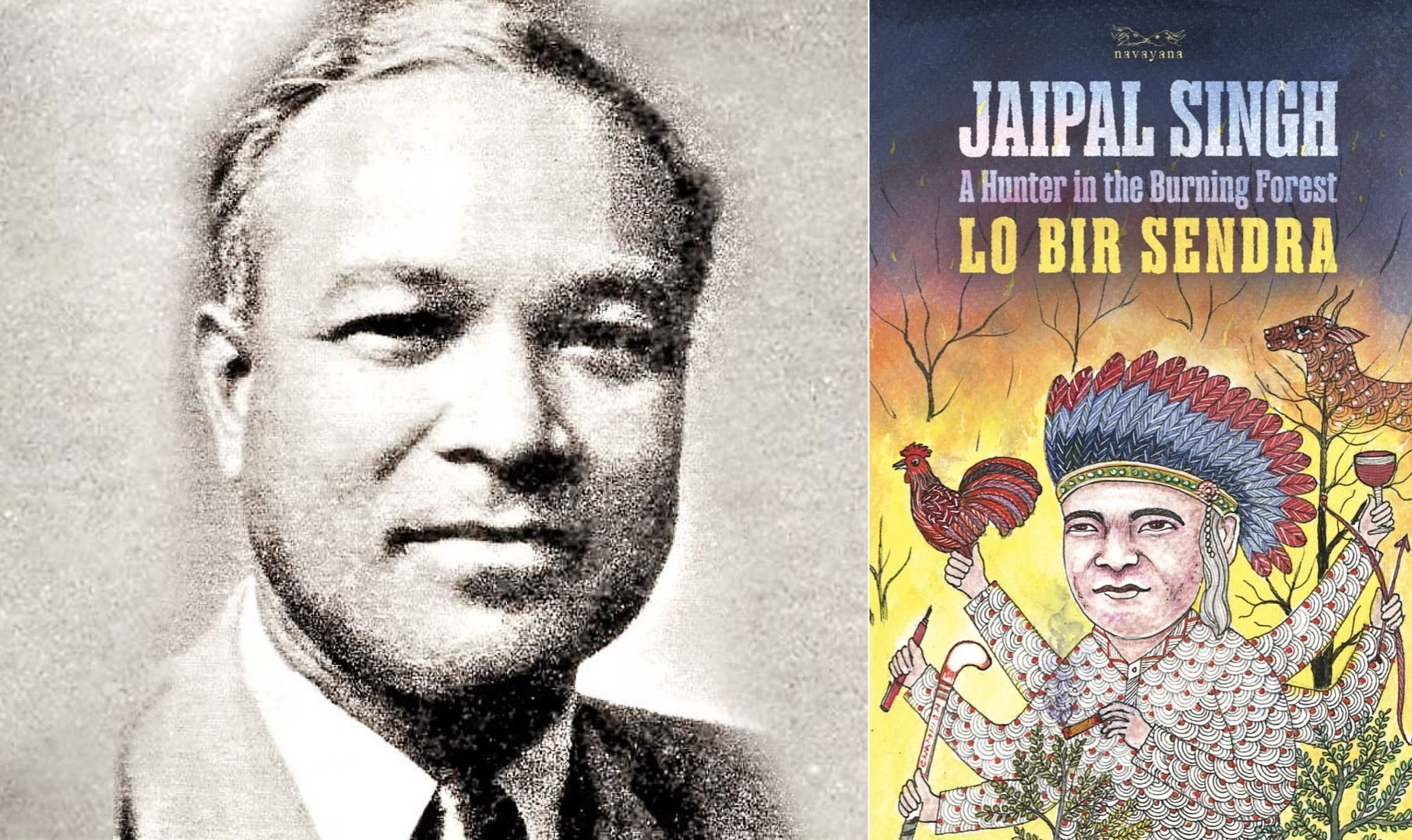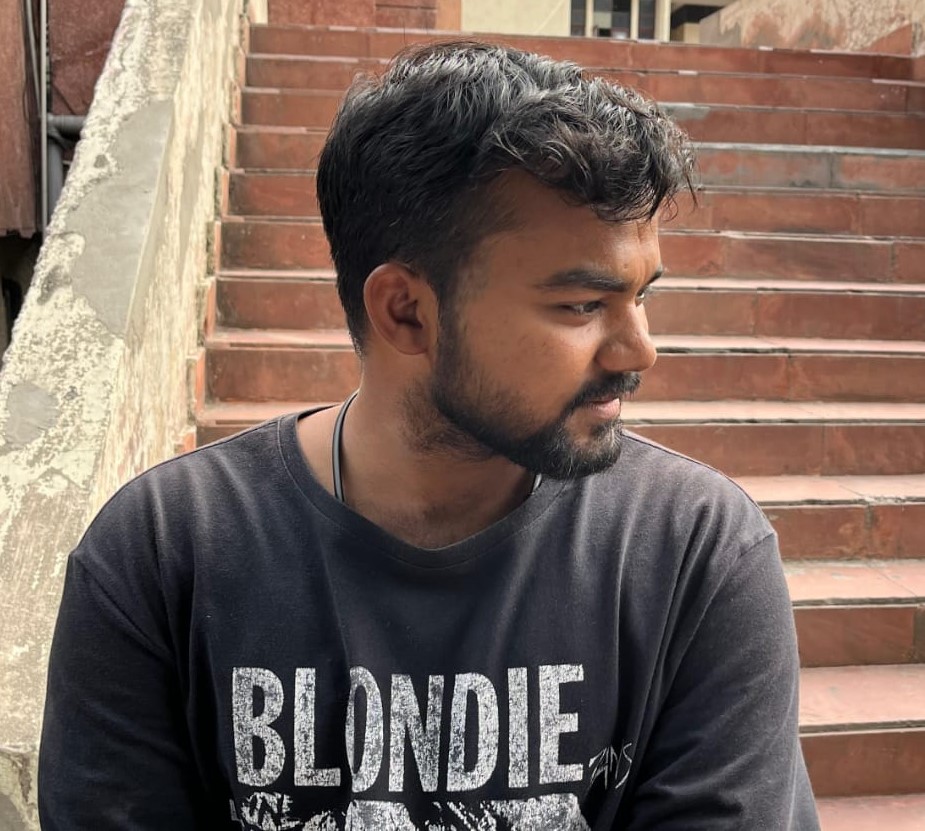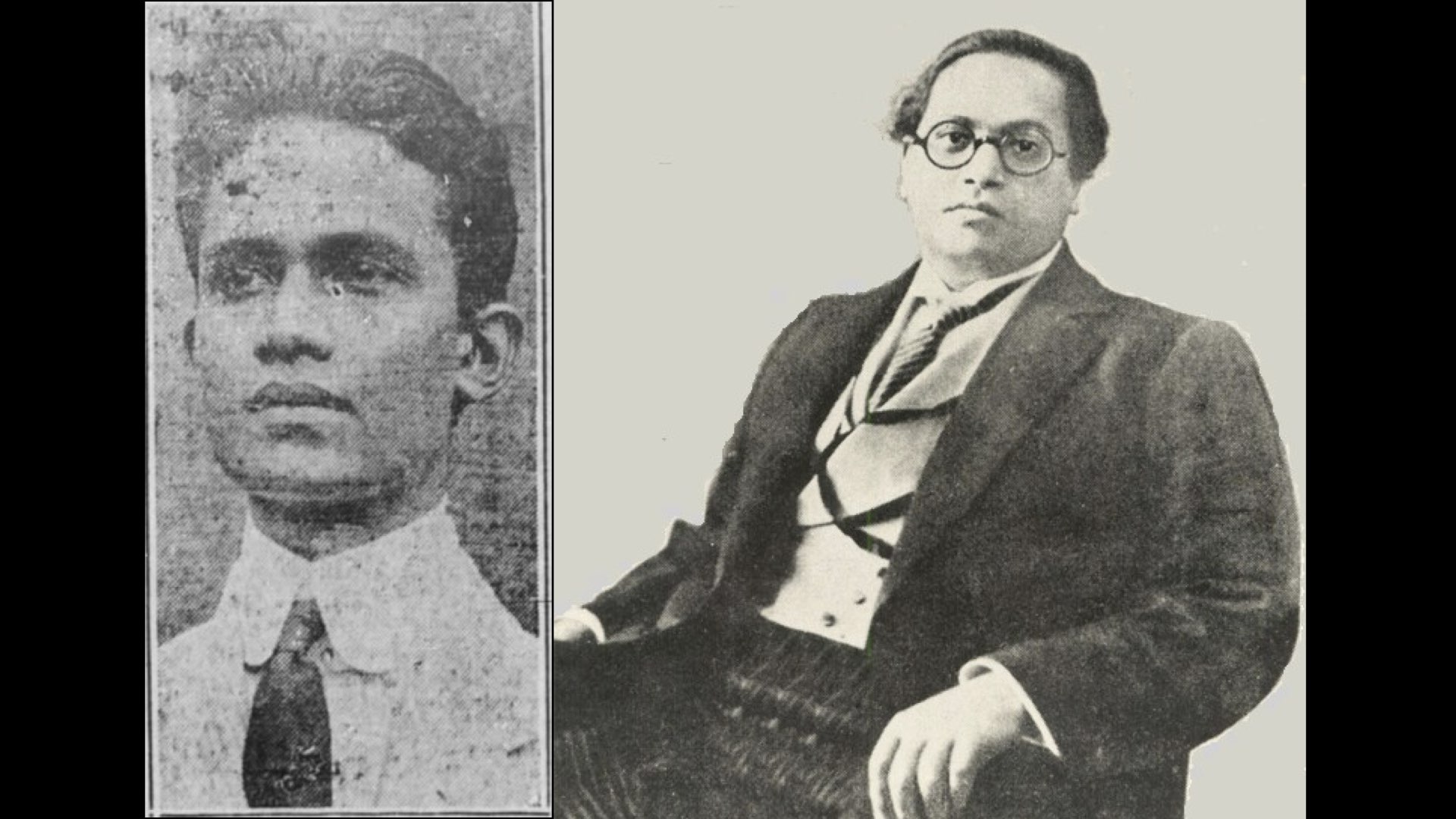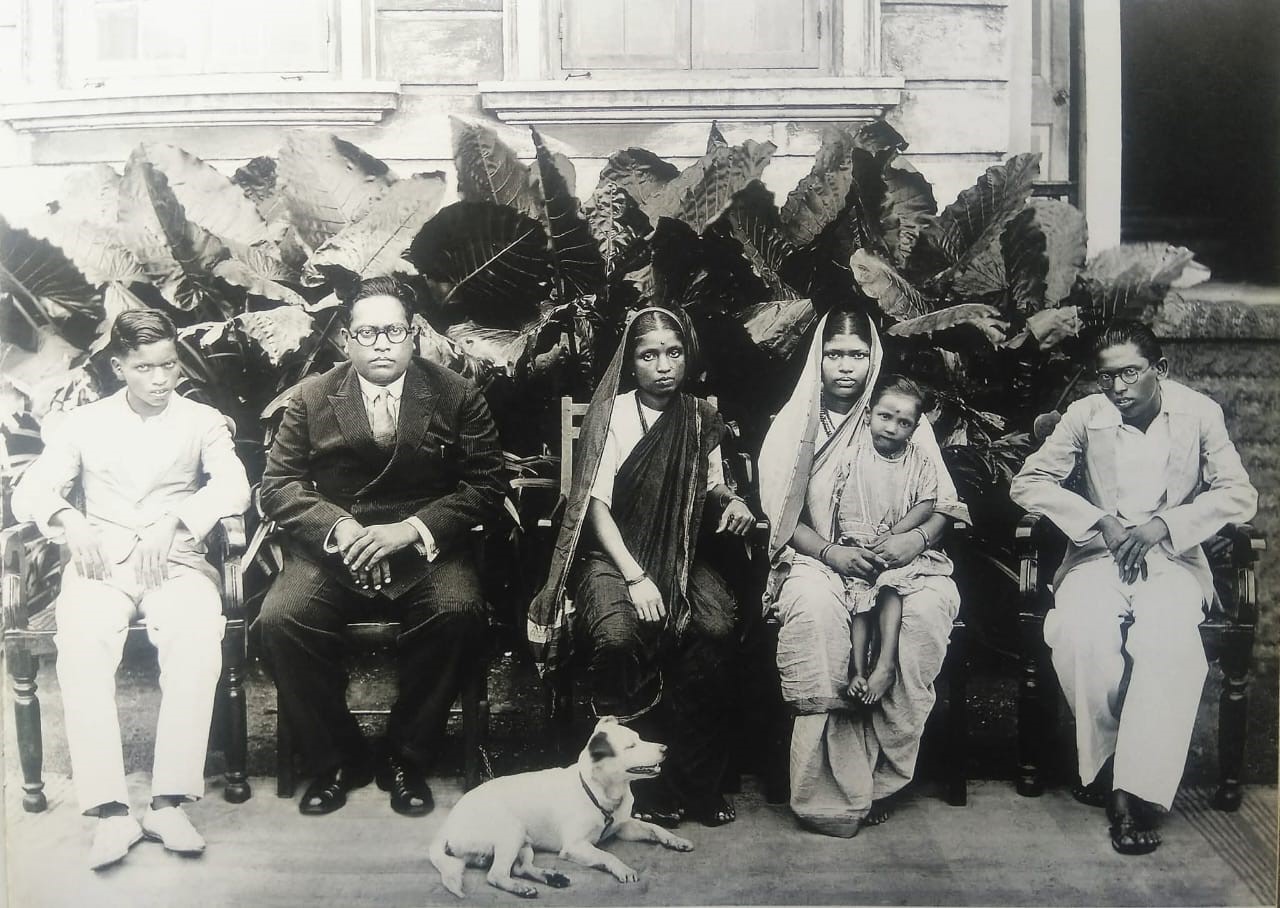Jaipal Singh Munda is remembered as a fearless tribal leader who asserted his identity in the Savarna-dominated Constituent Assembly and the captain of pre-Independence India’s hockey team that won the gold at the Olympics. ‘Lo Bir Sendra: A Hunter in the Burning Forest’, a memoir of Jaipal Singh Munda recently republished by Navayana, shows his personality was even more eclectic and contributions wider-ranging than previously known.
Jaipal Singh wrote the memoir as he was sailing to England in 1969. In this memoir, he touches on the many facets of his personality — sportsperson, trade union leader, tribal leader, parliamentarian, editor and administrator. This made Jaipal Singh an exception in the then feudal, casteist, colonized India. The story of how this memoir survived and was brought into publication is in itself fascinating. A copy of the manuscript was given to an Italian professor of Asian history, Enrico Fasana, by Jaipal Singh’s brother Amar Singh. Then, it was passed on to Barbara Verado, a PhD student of Fasana. During her PhD field visit to Lupungutu, Chaibasa, in Jharkhand, she left the manuscript with Father Mathew Areemparampil at the Tribal Research Institute. Finally, due to the efforts of Father Stanswamy, it was published for the first time by the Tribal Research and Training Centre (TRTC) and Jharkhandis’ Organization for Human Rights (JOHAR) with the title, Lo Bir Sendra. Father Stanswamy, who dedicated his life for the Adivasi cause, died in 2021 during his incarceration in Mumbai. His introduction to the biography of Jaipal Singh provides important insights on the life of “Marang Gomke”, as Jaipal Singh was widely hailed by the tribal people.
Jaipal Singh had the experiences of both the bourgeois and the proletariat. He served as a minister in the princely state of Bikaner. He was the first person from the tribal community to clear the Indian Civil Services, but while he was undergoing training to be a bureaucrat, he quit the ICS to captain the Indian hockey team. Under British rule, social relations were determined by feudalism and colonial violence. Brahmanism was the apparent ideology of the time and graded inequality was the lived experience. Given such a situation, the upward social mobility of a tribal was unthinkable. Had it not been for the missionaries, Jaipal Singh would not have access to the highest quality of education that he did. Canon Cosgrave was his mentor. He was educated at the prestigious Oxford University. He was a man of many talents. He captained the Indian hockey team to an Olympics gold. After serving in many positions in India and abroad, Jaipal Singh returned to his roots – the Chota Nagpur region of then Bihar and today’s Jharkhand – even though, interestingly, he never used his surname, Munda.

In colonial India, Bihar, Odisha and Jharkhand were part of the Bengal presidency. Bihar and Odisha were granted statehood in the 1912 and 1936, respectively, but the collective aspiration for a Jharkhandi Identity remained unfulfilled even after India’s independence in 1947. Jaipal Singh went on to become an important figure of a collective consciousness of this unfulfilled aspiration. Jaipal Singh joined the Adivasi movement in Ranchi as president of the Adivasi Mahasabha in 1939. His wife, Tara, however refused to accompany him back to his roots. Tara was the granddaughter of W.C. Bannerjee, the first president of the Indian National Congress. Santosh Kiro writes in the book “The Life and Times of Jaipal Singh Munda”, that Jaipal Singh’s commitment to the Jharkhandi cause was such that he willingly sacrificed his marriage for it. (After his first marriage came apart, Jaipal Singh married Jahanara Jeyatratnam in 1952.) However, Jaipal Singh himself writes in his memoir that it was a friend Maurice Hallett who suggested that he participate in the Jharkhand movement. Jaipal Singh remembers the words of Maurice Hallett in the book, “Don’t waste your time with congressmen. Go to Ranchi. An adivasi agitation has just started there. You have wandered around the world and you have made a good living. Do something for your people now.”
Thus, Jaipal Singh, after spending most of his life in elite circles, went back to Jharkhand, where he was welcomed by leaders like Rai Saheb Bandiram Oraon, Paul Dayal, Ignes Beck, Thebke Oraon, Theodore Surin and Julius Tigga. Jaipal was even asked to become president of the newly founded Adivasi Mahasabha. Upon his arrival in the Bengal Nagpur Railway Hotel, Jaipal Singh was investigated by the seniormost police officials over the speculation of him being a “Bolshevik”. This incident is a reminder of how the “spectre of communism” haunted the imperialist powers. The Bolshevik revolution inspired the anti-colonial movements globally and a socialist world was a collective imagination of the working classes. Jaipal Singh throwing his weight behind the movement for Jharkhandi statehood discomfited the ruling classes. Search warrants were unleashed against him. Despite strict surveillance, Jaipal Singh managed to participate in the “anti-compromise” conference along with thousands of other tribals. His life saw a sea change. Leaving his seat among the ruling classes, he joined the Adivasi movement for Jharkhand’s statehood. There were several gatherings of the Adivasi Mahasabha. Jaipal’s charismatic leadership has brought about a mass mobilization of Adivasis of the region. Soon, the Adivasi movement spread to Bengal, Assam, Orissa and Madhya Pradesh. Jaipal visited several regions to raise consciousness among the Adivasis. Jaipal Singh writes, “Employment was the most pressing problem for Adivasis. Spending 15 years in Jamshedpur, I had witnessed enough of it. Adivasi lands were acquired by big corporations and the Central government, and my people were landless. Most Adivasis were unskilled labourers with one foot in their paddy fields. Technicians, the few that were, came from Ranchi, there was no competition for unskilled labour except when famine conditions in Chattisgarh brought in thousands willing to work for a pittance. The contractors, without any conscience, took full advantage of the surplus labour. Tatas were also not keen to make unskilled labour permanent, as this would mean granting the right to provident fund, quarters and bonuses.” Jaipal Singh established labour unions in the Gorumasahini and Badampahar iron-ore mines (in then Orissa) of the Tatas. Despite having the support of more than ninety per cent of the labour force, the unions that he founded were not recognized by the Tatas. Only labour unions having Congress affiliation were recognized. However, this didn’t mean his efforts were in vain.
Jaipal Singh became the president of the Jharkhand Party formed in 1950. The Jharkhand Party played a vital role in the formation of Jharkhand state, although it didn’t become a reality until 50 years later, in the year 2000. There is an interesting anecdote related to the process that was set in motion for the formation of Jharkhand. The States Reorganization Commission reached Patna for a meeting with the leaders of the Jharkhand Party. But Jaipal Singh had been lied to by the Bihar Congress about Prime Minister Jawaharlal Nehru’s desire to meet him and had arrived in Delhi. Consequently, in absence of the party president, the commission refused to accept its memorandum. Sukhdeo Majhi, former MLA of the Jharkhand party, recounts that “Jaipal Singh could not forgive himself for this mistake his entire life”. Furthermore, Jaipal Singh, after experiencing electoral setbacks, merged the Jharkhand Party with the Congress as proposed by Nehru. However, betrayals from the Congress leadership were to follow. Nehru passed away and Jaipal Singh was alienated by the Congress, and as he considered leaving the Congress and reestablishing the Jharkhand party, he passed away in 1970. During his active involvement in the politics of Jharkhand, Jaipal Singh also started the weekly “Adivasi Sakam”. He served as the editor. However, he had to close it due to the lack of funds.
‘I am proud to be a jungli’
Jaipal Singh was a staunch advocate of Adivasi rights in the Constituent Assembly. In his famous address, Jaipal Singh reflected on the harsh conditions and exclusion faced by the tribals of the land. Only six members of the Constituent Assembly, including Jaipal Singh, belonged to the tribal community. Jaipal Singh said, “Mr Chairman, sir, I rise to speak on behalf of millions of unknown hordes – yet very important – of unrecognised warriors of freedom, the original people of India who have variously been known as backward tribes, primitive tribes, criminal tribes and everything else. Sir, I am proud to be a jungli – that is the name by which we are known in my part of the country.”
Jaipal’s assertion of his tribal identity, and calling himself a “jungli” was a revolutionary act. His words were a reminder to the Constituent Assembly about the large population of aboriginals of India. Faced with feudalism, Brahmanism and imperialism, tribals were the most disadvantaged sections of India. They were excluded from the social and political processes. Furthermore, in a response to the “objective resolution”, Jaipal Singh said, “This resolution is not going to teach Adivasi democracy. You cannot teach democracy to the tribal people; you have to learn democratic ways from them. They are the most democratic people on earth. What my people require, Sir, is not adequate safeguards as pandit Jawaharlal Nehru has put it. They require protection from Ministers, that is our position today. We do not ask for any special protection. We want to be treated like every other Indian.”
Jaipal Singh was critical of the classes who aimed to democratize the tribes. He believed the ruling classes had to democratize themselves instead of “modernizing” the tribals. Jaipal Singh hoped that the new Constitution would have provisions that would help root out casteism, classism and racialism from the consciousness of Indians.
Title: Lo Bir Sendra: A Hunter in the Burning Forest
Author: Jaipal Singh
Publisher: Navayana
Pages: 184
Price: Rs 399
Forward Press also publishes books on Bahujan issues. Forward Press Books sheds light on the widespread problems as well as the finer aspects of Bahujan (Dalit, OBC, Adivasi, Nomadic, Pasmanda) society, culture, literature and politics. Contact us for a list of FP Books’ titles and to order. Mobile: +917827427311, Email: info@forwardmagazine.in





